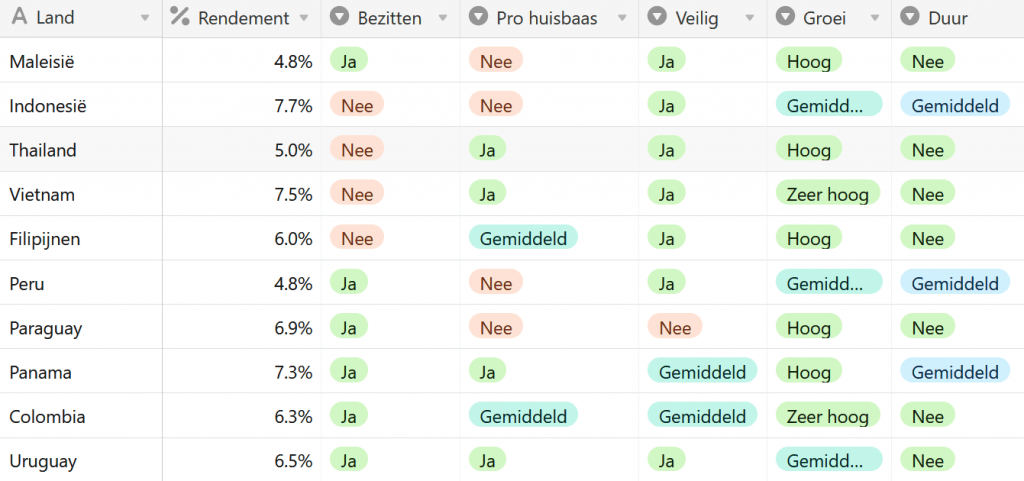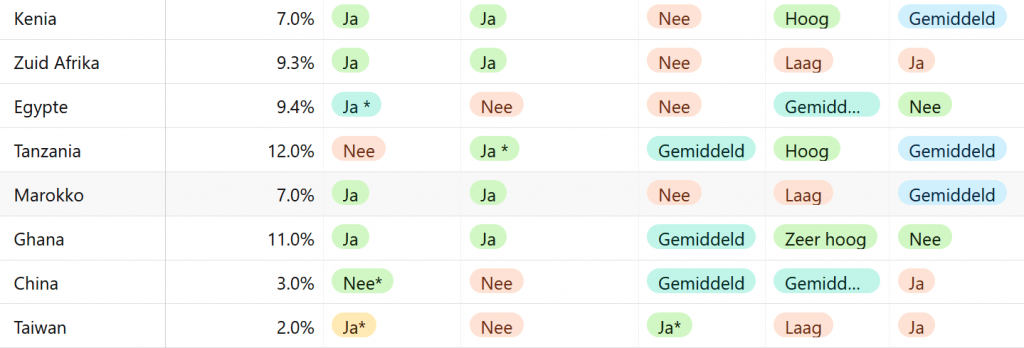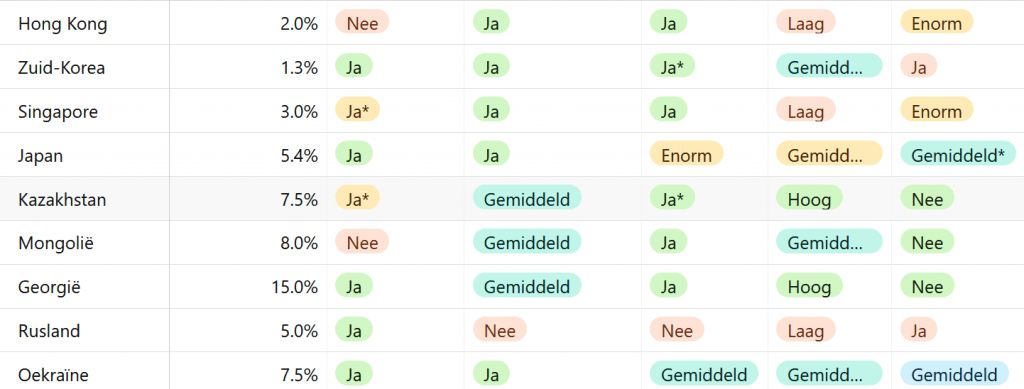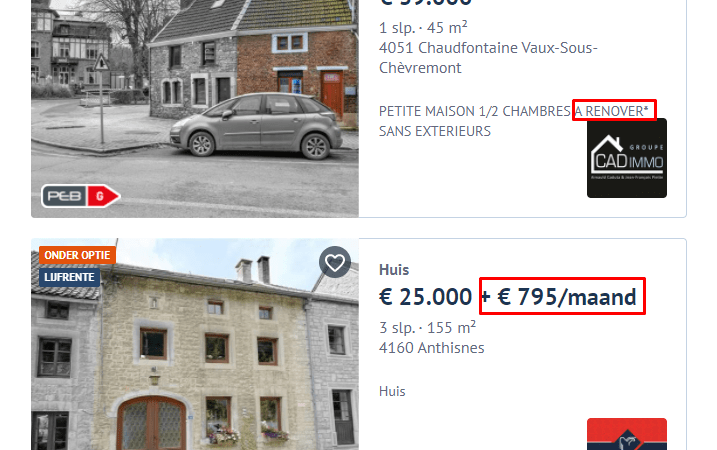Vastgoed in opkomende landen
Beleggen in vastgoed is iets dat ik de meeste mensen sterk kan aanraden, en dan vooral in het buitenland, omwille van enkele redenen:
- Je krijgt er vaak meer rendement op
- Je portfolio wordt een stuk diverser omdat je niet in je eigen land investeert
- Indien er iets zou gebeuren met je land, heb je altijd een tweede thuisbasis
En nog tal van andere voordelen.
In mijn serie Vastgoed doorheen de wereld heb ik een veertigtal landen onderzocht op het vlak van vastgoed, en gekeken waar de beste plekken zouden zijn om erin te beleggen.
Je kan die artikels hier lezen:
- Zuidoost-Azië
- Latijns-Amerika
- Afrika
- Azië
- Centraal Azië
- Oost-Europa
- Amerika
- West-Europa
- Canada, Australië en Nieuw-Zeeland
- Midden-Oosten
- Beste land om te investeren in vastgoed
Deze artikels zijn gebaseerd op huidige cijfers en de status quo, maar natuurlijk kan dit altijd veranderen.
Wat momenteel een goed land is om in te investeren, kan binnen tien jaar niet zo geweldig meer zijn omdat de economie stagneert of zelfs krimpt.
Een belangrijke factor is dus ook hoe sterk een bepaald land groeit, of verwacht wordt om te groeien in de komende decennia.
Laten we even kijken wat de beste opkomende landen zijn om te investeren in vastgoed, rekening houdend met hun waarschijnlijke groei, gebaseerd op de BNP-groei van de voorbije 10 jaar, data van de Wereldbank.
De beste landen
Als we even het overzicht van de beste landen om te investeren in vastgoed erbij halen, kunnen we eenvoudig bepalen welke kanshebbers zijn voor deze lijst:



Gebaseerd op een aantal criteria (zoals een minimumrendement van 6%, lage prijs van het vastgoed etc) kwam ik toen uit bij de volgende 7 landen:
- Georgië
- De Filipijnen
- Vietnam
- Kroatië
- Mongolië
- Uruguay
- Kazakhstan
Georgië valt meteen af wegens recente gebeurtenissen en de kans dat Putin het binnenvalt en je vastgoed overneemt en/of vernielt.
Als je liefst zo ver mogelijk van je thuisland belegt, met het oog op geografische diversificatie en de aankomende ineenstorting van de Westerse wereld, blijven er in feite maar een handvol goede opties over:
- De Filipijnen
- Vietnam
- Mongolië
- Uruguay
Zelf beleg ik al jarenlang in Filipijns vastgoed, en heb er zelfs een bedrijfje opgericht dat mensen helpt om dit ook te doen.
Vietnam en Uruguay staan ook op mijn radar, zowel om te investeren als om misschien te gaan wonen.
Maar … zijn dit opkomende landen? Even kijken naar hun gemiddelde groei, gebaseerd op de gemiddelde groei van het BNP van de voorbije 10 jaar:
- De Filipijnen: 5%
- Vietnam: 6,5%
- Mongolië: 5,6%
- Uruguay: 3%
Zoals je kunt zien hebben ze buiten Uruguay allemaal een zeer goede jaarlijkse groei, en kunnen ze dus terecht als opkomende landen worden beschouwd, en een aanrader voor vastgoedbeleggingen.
Andere opties
Daarnaast wil ik er ook een aantal andere opties aan toevoegen die bij de vorige selectie net niet goed genoeg waren, maar die in het licht van dit artikel wellicht wel wat interessanter worden.
Het gaat dus over “opkomende landen”, tweede of derdewereldslanden die nog heel wat economische groei in zich hebben.
Maleisië
- Rendement: 4,8%
- Groei: 5,5-6%
Thailand
- Rendement: 5,0%
- Groei: 4%
Paraguay
- Rendement: 6,9%
- Groei: 4,3%
Colombia
- Rendement: 6,3%
- Groei: 4%
Kenia
- Rendement: 7%
- Groei: 4,4%
Tanzania
- Rendement: 12%
- Groei: 5,7%
Ghana
- Rendement: 11%
- Groei: 6,1%
Zoals je kunt zien zijn er hier een aantal erg interessante opties, puur gebaseerd op de rendement van je vastgoed en de economische groei.
Vooral de Afrikaanse landen Tanzania en Ghana lijken erg interessant, en als je hier in vastgoed investeert is de kans zeer groot dat je er stevige winst op zal kunnen maken de komende decennia.
Persoonlijk ben ik vooral geïnteresseerd in Thailand, Paraguay en Colombia, landen die naast beleggingen in vastgoed ook heel wat andere leuke troeven hebben.



